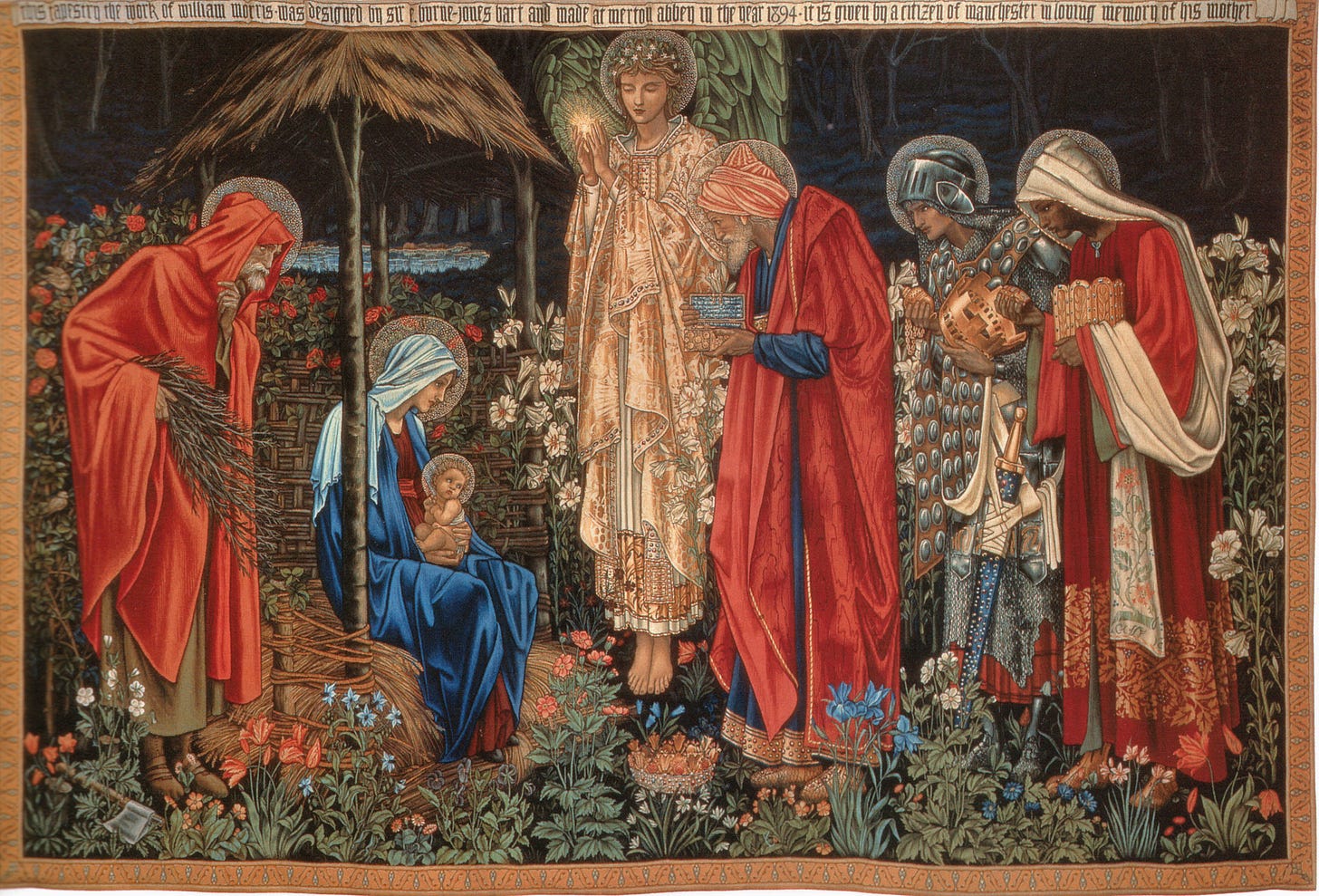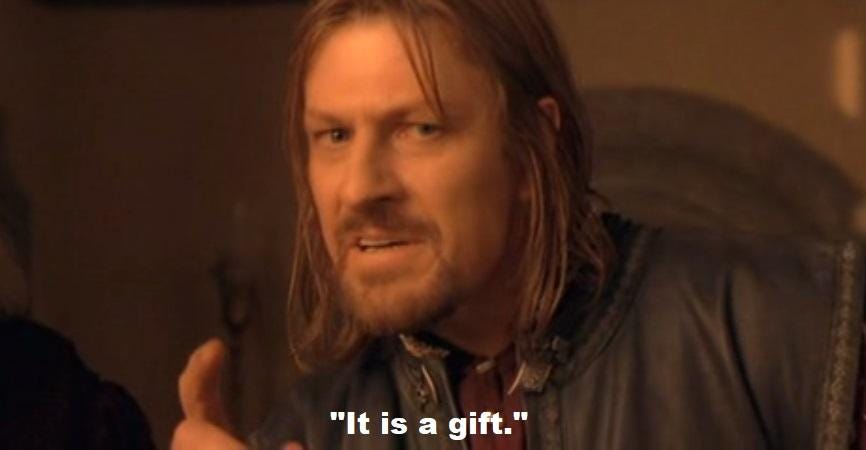The Gifts of the Wise
Understanding the meaning of Galadriel's gift to Gimli and the gifts of the Magi
Happy New Year, all! And Happy Feast of the Epiphany!
This week churches all across the world celebrate the Feast of the Epiphany.1 In the West, this means commemorating the visit of the Magi, or Wise Men, to Jesus and his parents as described in Matthew 2:1-12.
That’s right, they thought the Christmas gifts stopped with the twelve lords a leaping on the twelfth day of Christmas…
but they were—all of them—deceived, for another set of gifts was given.
For on the 13th day of Christmas, when we remember the visit of the Wise Men we also remember the gifts of the Magi. No, not those gifts of the Magi—no pocket watch chain or set of combs for baby Jesus (though he would be equally unable to use them!). It is their gifts of gold, frankincense, and myrrh that we remember.
So enjoy this essay from the archives on gifts in Tolkien and the gifts of the Magi.
The Gifts of the Wise
Gift giving is something of a minor recurring theme in Tolkien’s legendarium. In creating the race of Men and setting them apart from the Firstborn, the Elves, Ilúvatar himself gives his younger children the gift2 of mortality. In the Second Age, Sauron disguises himself in a fair form and gives himself the name Annatar, which means ‘Lord of Gifts,’ while he attempts to sway the elves in Middle-earth to his side. Sméagol demands the One Ring as a birthday gift from his cousin Déagol. Bilbo gifts both Sting and his mithril shirt to Frodo, the latter of which was itself a gift to Bilbo from Thorin. Galadriel gives gifts to the members of the Fellowship upon their departure from Lothlórien.
And who could forget this moment from one of the most memeable scenes in the entire film trilogy: Boromir saying of the One Ring at the Council of Elrond, ‘It is a gift.’
To know the true meaning of a gift it is often necessary to know something of the giver as well as something about the recipient. Ilúvatar’s gift of death to men, for instance, is famously difficult to rightly interpret—how can death and not being bound to this plane of existence be a good gift? Knowing more about Ilúvatar as well as the race of men, especially as compared with the elves and their fate, gives some crucial keys to understanding how it could be so. Sauron’s gifts to the elves of knowledge and friendship while he was disguised as Annatar were deceptive, concealing ulterior motives and hiding evil intentions behind fair appearance. Sméagol’s ‘birthday gift’ is no gift at all, and though Boromir was right that the Ring falling into the hands of Frodo is a gift to the Free Peoples of Middle-earth, he was quite wrong about how to wield it.
In particular, the significance of Galadriel’s gift to Gimli of three strands of her hair remains obscured unless you know the history told in The Silmarillion. There we learn of Fëanor’s quest to craft the eponymous Silmarils, wherein he captured the light of the Two Trees of Valinor. Galadriel’s hair was one of his inspirations in his great labor, for it shone gold and silver with the very light of the Two Trees of Valinor. On three occasions he begs her for a single strand of it. Three times Galadriel refuses him. And yet, thousands of years later, she performs a perfect reversal of her initial rejection, giving one strand for each time she denied the gift at the first asking. And not only that, but she gifts these strands to a dwarf, whose people have had bitter blood with elves for centuries.
This was a kingly gift indeed, shocking to those who were aware of her history with Fëanor and functioning as a significant pledge of goodwill between the feuding peoples.
Just as Galadriel’s gift to Gimli is more noteworthy than might be initially understood, many throughout history have also looked for symbolic meanings in the gifts that the Wise Men brought to Jesus.
Special thanks to Richard R, Jenni T, Ed B, and Reed D for upgrading to an Extended Edition membership this past week, and shout-out to Lauren K for becoming a lifetime access member of the Extended Edition!
To join hundreds of members of the Jokien with Tolkien Extended Edition in reading the rest of this full essay (plus over 50 posts in the archives of Extended Edition content), upgrade your subscription today for just $5 a month or $40 a year!
OR for the same price of a monthly membership ($5), get this full essay plus nine more Extended Edition exclusive essays by purchasing my Lore of the Rings Vol. 1 e-book:
Keep reading with a 7-day free trial
Subscribe to Jokien with Tolkien to keep reading this post and get 7 days of free access to the full post archives.







